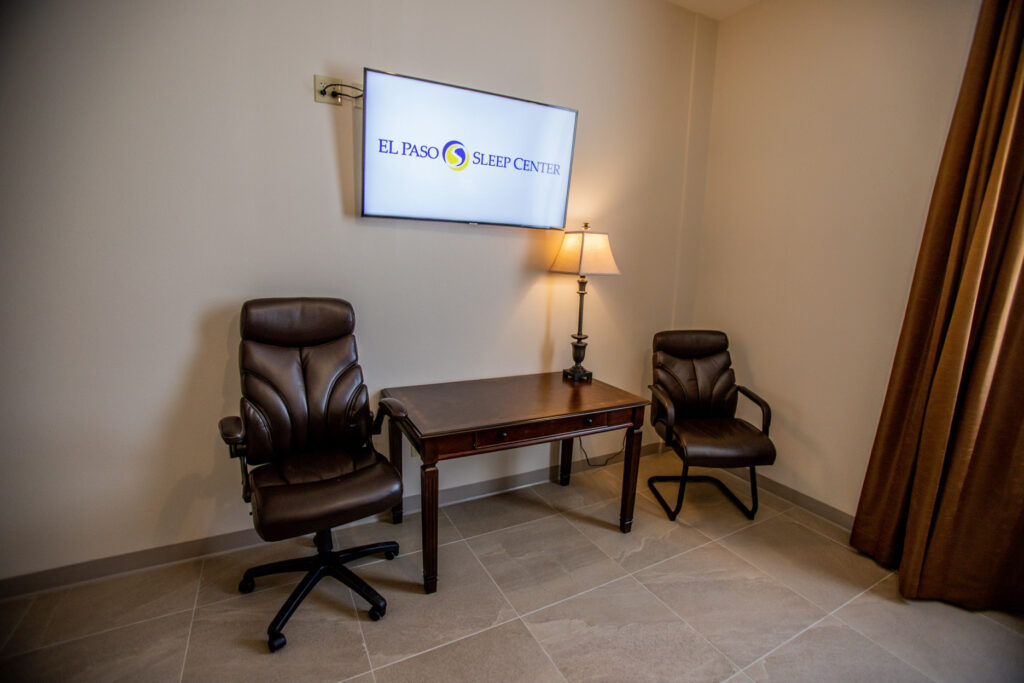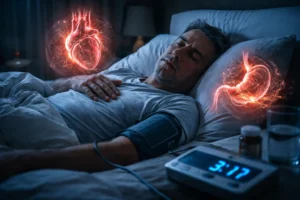Sleep is a vital part of our lives. It rejuvenates us, keeps us healthy, and prepares us for the challenges of the next day.
However, many people struggle with sleep disorders. These can range from insomnia to sleep apnea, and they can significantly impact our health and quality of life.
This is where a sleep center comes in. A sleep center, such as the El Paso Sleep Center, provides specialized care for individuals experiencing sleep-related issues.
At a sleep center, you can undergo a sleep study. This is a non-invasive procedure that monitors your sleep to diagnose any disorders. The results can help create a personalized treatment plan for you.
Visiting a sleep center can have numerous benefits. It can lead to better sleep quality, improved health, and increased daytime alertness.
In this article, we will delve into the benefits of visiting a sleep center, with a special focus on the services offered by sleep centers in El Paso, Texas.
Understanding Sleep Centers and Their Role
A sleep center is a medical facility dedicated to diagnosing and treating sleep disorders. These centers offer a range of services and are equipped with advanced technologies.
Services at a sleep center typically include comprehensive evaluations, sleep studies, and tailored treatment plans. Sleep clinics often focus on a multitude of sleep-related issues.
Sleep specialists play a crucial role in these centers. They possess deep knowledge and expertise in sleep medicine, which is vital for accurate diagnosis and effective treatment.
These specialists use state-of-the-art technology to perform sleep studies and other diagnostic procedures. This technology can monitor brain activity, breathing patterns, heart rate, and more.
The technology used in sleep centers enables specialists to gather detailed data. This data is essential for identifying and understanding various sleep disorders.
- Comprehensive evaluations
- Sleep studies
- Tailored treatment plans
- State-of-the-art technology
By visiting a sleep center, you gain access to resources that aren’t available in general healthcare settings. This makes sleep centers a specialized and valuable resource for addressing complex sleep concerns.
The role sleep centers play in managing and treating sleep disorders cannot be overstated. They provide essential services that can lead to significant improvements in sleep quality and overall health.

Common Sleep Disorders Diagnosed at Sleep Centers
Sleep centers often diagnose a wide range of sleep disorders, each affecting individuals in unique ways. Identifying these disorders is the first step toward effective treatment.
Common disorders include insomnia, sleep apnea, restless legs syndrome, and narcolepsy. Each condition has specific symptoms, like difficulty falling asleep or excessive daytime sleepiness.
Accurate diagnosis of these disorders is vital for crafting a successful treatment plan. Misdiagnosis can lead to ineffective treatments and prolonged suffering.
Sleep centers utilize various diagnostic tests to ensure precise identification of sleep issues. This includes overnight sleep studies and home-based sleep testing.
The comprehensive approach to diagnosis at sleep centers encompasses multiple aspects of sleep. It considers factors such as sleep duration, quality, and physiological changes during sleep.
- Insomnia
- Sleep apnea
- Restless legs syndrome
- Narcolepsy
Diagnosing sleep disorders accurately can positively impact one’s health and well-being. It paves the way for implementing specific treatments tailored to the individual’s needs.
Considering the diverse nature of sleep disorders, visiting a sleep center is a prudent choice. It ensures that issues are addressed efficiently and comprehensively under expert supervision.
The Sleep Study: What to Expect in El Paso
A sleep study is an essential tool for diagnosing sleep disorders. It provides crucial insights into your sleep patterns and potential disruptions.
When you visit a sleep clinic in El Paso, the process begins with an initial consultation. The specialist will discuss your sleep concerns and determine the need for a sleep study.
Sleep studies typically take place overnight in a specialized facility. However, home-based studies are also available for some conditions.
During the study, sensors are placed on your body to monitor various physiological metrics. These include heart rate, breathing patterns, and brain activity.
Understanding what to expect can ease any anxiety about the process. The environment is designed to be comfortable, allowing for natural sleep.
After the study, a specialist will review the collected data. This analysis helps in identifying any sleep disorders and understanding their severity.
- Initial consultation
- Overnight or home-based study
- Monitoring with sensors
- Comfortable environment
- Detailed analysis
Following the study, you will receive a comprehensive report. The report will include findings and recommendations for treatment options.
Your sleep specialist will guide you through the results. They will explain the implications and outline the next steps in your care plan.
Post-study evaluations are crucial. They ensure that any treatment or intervention addresses the identified issues effectively.
In El Paso, sleep centers provide extensive support throughout this process. They are committed to helping you achieve better sleep and improved health outcomes.
Understanding the sleep study process can encourage proactive steps toward resolving sleep issues. Embracing the study with an open mind can lead to significant health improvements.

Personalized Treatment Plans and Their Benefits
At the heart of effective sleep care is personalized treatment. Sleep centers tailor plans to suit individual needs and diagnoses. This customization ensures optimal outcomes.
Each patient is unique. Therefore, treatments must reflect their specific sleep patterns, medical history, and lifestyle. Personalization makes all the difference.
One key treatment for sleep apnea is Continuous Positive Airway Pressure (CPAP) therapy. CPAP therapy involves using a machine that helps maintain steady breathing during sleep. Sleep centers provide expert guidance on selecting the right machine and mask for each patient.
For those who cannot tolerate CPAP, alternative therapies are available. These may include oral appliances or lifestyle modifications. Specialists help patients explore viable options.
Customized plans also incorporate behavioral changes. Cognitive-behavioral therapy for insomnia, for instance, can be tailored to an individual’s sleep habits and challenges.
- Personalized care ensures better outcomes
- CPAP therapy for sleep apnea
- Alternative treatments if CPAP is not suitable
- Inclusion of behavioral therapy
The benefits of personalized treatment plans extend beyond symptom management. They contribute to overall health improvements. Better sleep often leads to better physical and mental well-being.
Comprehensive care from sleep centers addresses both immediate sleep issues and long-term health. This holistic approach helps patients regain control over their sleep patterns.
Engaging with tailored sleep care empowers patients. It provides them with the tools and support needed for lasting change. Personalized treatment is the cornerstone of successful sleep disorder management.
The Impact of Untreated Sleep Disorders
Ignoring sleep disorders can lead to serious consequences. Sleep plays a crucial role in maintaining overall health. Untreated conditions may disrupt daily activities and well-being.
Lack of restful sleep affects concentration and mood. Productivity at work or school may drop, and personal relationships can suffer. Fatigue increases irritability and stress levels.
Moreover, untreated sleep disorders often correlate with other health issues. Conditions such as heart disease, obesity, and diabetes are linked to inadequate sleep. Over time, these issues can exacerbate each other.
Sleep disorders do not exist in isolation. They impact mental health, leading to anxiety or depression. Addressing sleep issues promptly can prevent these negative effects and improve long-term health outcomes.
By seeking help at a sleep center, individuals can minimize these risks. Early diagnosis and treatment can lead to a healthier, more balanced life.
Improving Sleep Hygiene and Habits
Good sleep hygiene is essential for quality rest. Adjusting daily habits can significantly enhance sleep quality. Small lifestyle changes can make a big difference.
Creating a relaxing bedtime routine helps prepare your body for rest. Consistent sleep and wake times help regulate your internal clock. Reducing screen time before bed can also improve relaxation.
A proper sleep environment plays a crucial role in achieving restful sleep. The bedroom should be a comfortable, calming space. Consider these key factors for an ideal sleep environment:
- Keep the room dark, quiet, and cool
- Choose a comfortable mattress and pillows
- Minimize distractions and noise
Improving sleep hygiene and the sleep environment often alleviates mild sleep issues. When coupled with professional guidance, these strategies can lead to more restful nights. A visit to a sleep center can help tailor these approaches to individual needs, leading to lasting sleep improvements.

The Convenience and Support of Local Sleep Centers in El Paso
For residents of El Paso, accessing a sleep center is both convenient and beneficial. Having a local facility minimizes travel time and stress, making the process easier.
Proximity to a sleep center means quick access to diagnostic services and treatment. El Paso sleep centers offer timely help, ensuring that health concerns are addressed promptly.
Ongoing support and follow-up care are key elements of sleep centers’ services. They ensure that treatment plans are effective and adjustments are made as necessary. This continuous care helps sustain improvement over time.
The presence of a local sleep center fosters a supportive community environment. Patients benefit from knowing they can easily seek help and guidance whenever needed. For those in El Paso, a nearby sleep center is a valuable resource for maintaining a healthy sleep routine.
The Comprehensive Care Team Approach
At a sleep center, the approach to care involves a diverse team of specialists. These experts work together to provide holistic care for various sleep disorders. Such collaboration enhances the quality of treatment.
Multidisciplinary teams often include sleep physicians, respiratory therapists, neurologists, and psychologists. This variety of expertise ensures that patients receive well-rounded evaluations. Each specialist adds unique insights into diagnosing and treating sleep issues.
Comprehensive evaluations are key to understanding the complex nature of sleep disorders. A thorough assessment helps in identifying underlying causes and crafting effective treatment plans. This holistic perspective is vital for successful outcomes.
Treatment at sleep centers encompasses more than just addressing symptoms. Comprehensive strategies may involve lifestyle advice, medical interventions, and ongoing monitoring. The aim is to create a sustainable solution that promotes long-term health. By leveraging a multidisciplinary approach, sleep centers ensure that each patient receives personalized, in-depth care.
Cost Savings and Long-Term Health Benefits
Visiting a sleep center can lead to significant cost savings over time. Early diagnosis of sleep disorders can prevent the escalation of related health issues. Early intervention can reduce the need for expensive treatments in the future.
Untreated sleep disorders often contribute to more serious health complications, such as cardiovascular diseases and diabetes. By addressing these issues promptly, patients can avoid long-term health risks. This proactive approach aids in maintaining overall wellness.
Sleep centers provide ongoing monitoring of patients’ conditions. Regular follow-ups allow specialists to adjust treatment plans as needed. This ensures that the care provided remains effective over time.
Long-term health benefits extend beyond just improved sleep. Patients experience enhanced mental clarity, better emotional health, and increased energy. These improvements contribute to a higher quality of life, demonstrating the lasting impact of effective sleep disorder management. By prioritizing sleep health, individuals invest in their future well-being.
Education, Resources, and Community Support
Education is a cornerstone of effective sleep management. Sleep centers provide valuable educational resources that help patients understand their conditions better. This knowledge empowers individuals to participate actively in their treatment.
Many sleep centers offer access to various support groups. These groups provide a platform for sharing experiences and gaining insights. Being part of a community where others face similar challenges can be incredibly motivating.
Staying informed about the latest advancements in sleep research is crucial. Sleep centers often have up-to-date information on new treatments and techniques. Patients benefit from the center’s commitment to ongoing education and research.
Sleep centers also offer resources tailored to individual needs. They might include guides on healthy sleep habits, lifestyle adjustments, and dealing with stress. These resources play a vital role in supporting patients beyond the treatment facility.
Here’s what you can expect from a sleep center:
- Comprehensive educational materials
- Information about the latest research
- Access to peer support groups
- Personalized advice on lifestyle changes
- Ongoing education for informed care decisions
This comprehensive approach ensures that patients are not only treated but also supported in their journey to better sleep. By integrating education and community support, sleep centers foster an environment conducive to lasting improvements in sleep health.

Addressing Sleep Issues Across All Ages and Lifestyles
Sleep issues do not discriminate by age. From children to senior citizens, everyone may face sleep challenges. Sleep centers are equipped to handle these diverse needs with tailored approaches.
Pediatric sleep issues often include difficulties like night terrors or sleepwalking. Early intervention can help resolve these problems before they impact growth and development. Sleep centers offer solutions to help children and their families.
On the other end of the spectrum, aging can bring changes in sleep patterns. Older adults might struggle with insomnia or frequent awakenings. A sleep center can provide strategies and treatments to address these age-related sleep issues effectively.
Shift workers often find it challenging to maintain consistent sleep. Erratic schedules can disrupt the body’s internal clock. Sleep centers offer strategies that align with unconventional work hours, ensuring quality rest for these individuals.
Here’s a range of how sleep centers can help:
- Solutions for pediatric sleep disorders
- Age-appropriate interventions for seniors
- Personalized advice for shift workers
- Techniques for managing irregular schedules
- Support across all life stages
By taking into account the unique lifestyle needs and challenges of each patient, sleep centers provide comprehensive care that enhances sleep quality for everyone, regardless of age or lifestyle.
Conclusion: Embracing the Journey to Better Sleep
Visiting a sleep center offers numerous benefits for those seeking restful nights. From precise diagnoses to tailored treatment plans, a sleep center addresses various sleep issues with expertise. This comprehensive approach leads to improved sleep quality and overall health.
Professional guidance allows individuals to make informed decisions about their sleep health. Residents of El Paso have convenient access to specialized care with local centers. This ensures ongoing support and long-term well-being.
If sleep issues affect your quality of life, don’t hesitate. Explore the wide range of resources and assistance available at a sleep center near you.








